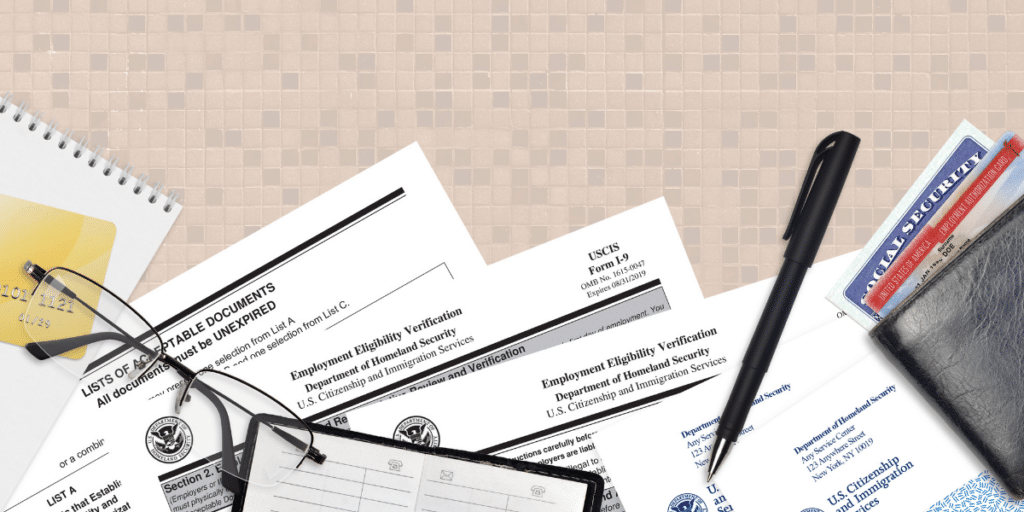Contracts are the backbone of any good business relationship. They bring clarity, set expectations, and hold everyone accountable. But when one side doesn’t follow through, the fallout can have far-reaching consequences. Whether it’s a missed payment, an undelivered service, or a dispute over responsibilities, a breach of contract can leave you facing financial difficulties and strained relationships. It’s not always easy to know when to seek legal support, but getting the right guidance early can save you time, money, and energy. At Dozier Miller, our business contract lawyers are here to guide you through it.
What Is a Breach of Contract and Why Does It Matter?
A breach of contract happens when one party doesn’t honor their part of an agreement. This could mean not delivering a product or service, missing deadlines, or simply ignoring agreed-upon terms. Some breaches might be small (like a slight delay), while others are much bigger (like skipping out on a payment entirely).
Why does this matter? Aside from being frustrating, you might face unexpected financial losses, find your business operations thrown off course, or even watch your relationships with clients or vendors suffer. Handling breaches quickly can reduce the damage, but you may need help from a breach of contract attorney to understand the what legal actions you can take.
Breach of Contract in North Carolina
North Carolina has specific laws governing breach of contract cases. To succeed in your case, you need to show there was a valid contract, the other party broke it, and you suffered damages as a direct result.
For most cases, the statute of limitations in North Carolina for filing a breach of contract claim is three years for both written and oral agreements. However, if a contract is signed “under seal,” the deadline is generally extended to ten years.
Types of Contract Breaches in North Carolina
Not all breaches are treated the same, and the type of breach you’re dealing with can impact your legal strategy. Here’s a breakdown of the four main types:
Material Breach
This is when a major part of the agreement is violated, making it impossible to achieve the contract’s main purpose. For instance, if you hire a photographer for an event and they don’t show up on the scheduled day, it’s a material breach because the core service wasn’t delivered.
Minor Breach
A minor or partial breach happens when a small part of the contract isn’t followed, but the overall goal is still met. For example, if the photographer delivers your event photos but misses a few specific shots you agreed to, it’s a minor breach. It’s frustrating, but it’s often something that can be resolved through communication or compensation.
Anticipatory Breach
An anticipatory breach happens when one party lets you know ahead of time that they won’t be sticking to their end of the deal. For example, if your caterer tells you a week before your wedding that they can’t provide the food they promised, that’s an anticipatory breach. This means you can take action before the contract deadline rolls around.
Fundamental Breach
A fundamental breach is more serious than a material breach because it breaks a key part of the contract, essentially making the agreement null and void. For instance, if you rent an apartment and the landlord rents the same apartment to someone else at the same time, it completely undermines your agreement. Fundamental breaches usually come with serious consequences and often result in the contract being terminated.
These laws may seem straightforward, but they often become more complex when applied to the real world. A breach of contract attorney familiar with North Carolina laws can help you assess your situation and decide the best way forward.
Steps to Resolving a Breach of Contract Case
Resolving a breach of contract case usually looks something like this:
- Prove a Valid Contract Existed. The first step is proving there was a legally binding agreement. This usually requires a thorough business contract review.
- Demonstrate That a Breach Occurred. Next, you’ll need proof that the other party didn’t hold up their end of the contract.
- Show Proof of Damages. To claim compensation, you’ll need to show how the breach directly caused harm to your business or finances.
- Explore Arbitration or Mediation. Before going to court, many business contract lawyers suggest trying alternative dispute resolution methods first, as they can save both time and money.
- Litigate When Necessary. If other solutions fail, the case may move to litigation. This is often the most time-consuming step, but a solid legal strategy can make a big difference in the outcome.
7 Signs You Need an Attorney for a Breach of Contract Case
Not every contract dispute needs a lawyer. Sometimes, a simple conversation is all it takes to sort things out. But there are some clear signs that you should consult a lawyer for breach of contract:
The Contract Is Complex
Business contracts can be packed with legalese and technical terms that are hard to untangle. If your agreement is long or complicated, a legal document review by an attorney can help you find a way forward.
Significant Financial Loss Is at Stake
When the breach threatens your business’s financial stability, it’s time to call in professional help. A knowledgeable attorney can help you recover damages and protect your interests.
The Other Party Denies Responsibility
If the other party refuses to acknowledge their breach, you’ll need a lawyer to help build a strong case and demonstrate wrongdoing.
You’re Facing Counterclaims
Breach of contract disputes can escalate quickly. When the other party starts making accusations against you, an attorney can help you respond and defend yourself.
Negotiations or Mediation Have Failed
Trying to settle disputes through negotiation or mediation is often the first step. If those efforts fall short, litigation may be the next move. An experienced breach of contract attorney can help you navigate the legal process and advocate for the best possible outcome.
You Need Help Calculating Damages
In breach of contract cases, proving damages can get tricky. Depending on the terms of the contract and what happened during the breach, you could be entitled to different kinds of damages, like compensatory, consequential, or even punitive damages. A good attorney can help assess your losses and figure out which damages to go after.
You Need Help Enforcing a Contract
Even with a valid contract, enforcing it when the other party breaches can be tough without help from an experienced attorney. There are specific legal steps you need to follow, and missing any of them could cause delays or even get your case dismissed. A good attorney can walk you through the process and make sure everything is done right to help you successfully enforce your contract.
How Dozier Miller Law Group Can Help
At Dozier Miller Law Group, we get how frustrating a breach of contract can be. Our team is here to help you navigate the risks and sort out disputes quickly. With our business contract review services, we’ll check agreements before they’re signed to spot any potential problems. And if a breach happens, our contract dispute lawyers will guide you through every step—whether it’s negotiation, mediation, or litigation.
Don’t wait for a contract issue to escalate. If you need help with legal document review, business contract disputes, or negotiating resolutions, our attorneys are here to help. Schedule a consultation with us today and take the first step toward resolution.

CATEGORIES
Contact an Attorney
Our attorney offer specialized guidance and representation in a variety of practice areas.

REMEMBER: Always speak with your own attorney
This information is provided for informational purposes only; it is not offered as and does not constitute legal advice.
More Insights and Resources
Learn more about what to expect when facing a family law dispute in Charlotte, North Carolina from Family Law attorneys at Dozier Miller Law Group
What NC House Bill 269 Could Mean for Non-Compete Agreements in North Carolina
Non-compete agreements have long been a controversial tool in the corporate world—sometimes protecting legitimate business interests, and…
Protect What Matters Most: Estate Planning for Every Stage of Life
Thinking about the future doesn’t always come naturally. Many of us get caught up in the day-to-day,…
Will a Separation Protect Me Financially?
Separation is never easy, especially when financial questions start piling up. Can you protect your savings? Will…
Practical Custody Arrangements for Families
Trying to figure out custody arrangements? You’ve probably come across terms like joint custody, primary custody, and…
Future-Proof Your Business Against Form I-9 Changes
Running a business is no small feat. Between managing your team, keeping customers happy, and planning for…
When Do You Need an Attorney for a Breach of Contract Case?
Contracts are the backbone of any good business relationship. They bring clarity, set expectations, and hold everyone…
Navigating Immigration Changes and Their Impact on Employment Law
No matter the size of your business, immigration law affects your ability to hire and retain the…
LGBTQ Families and Stepparent Adoption: What You Need to Know in North Carolina
As a family law attorney in North Carolina, I’ve seen many parents assume that their legal status…
What to Do When You Get a Bad Google Review
If you’re a Charlotte business owner, you know just how important your online reputation is. Around 98%…
Managing Your Immigration Status in 2025
The 2024 election brought significant shifts to U.S. immigration policy, many of which have already begun reshaping…










